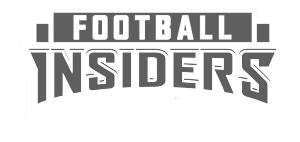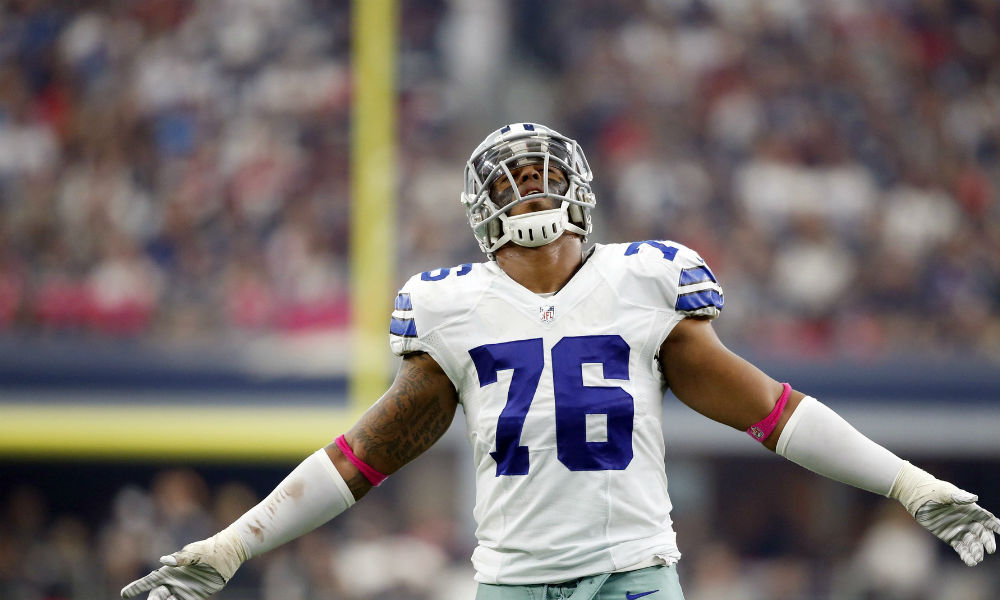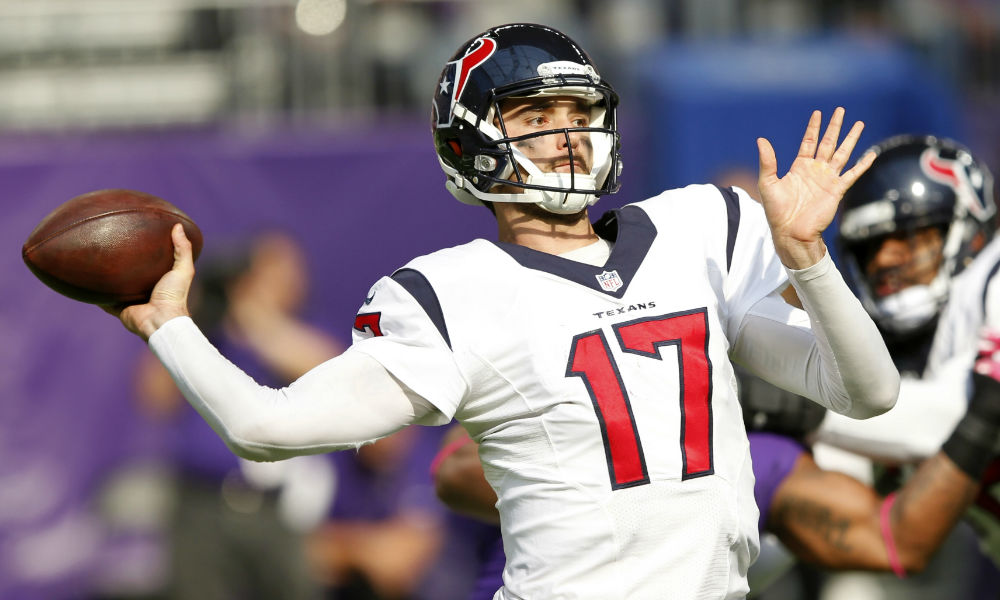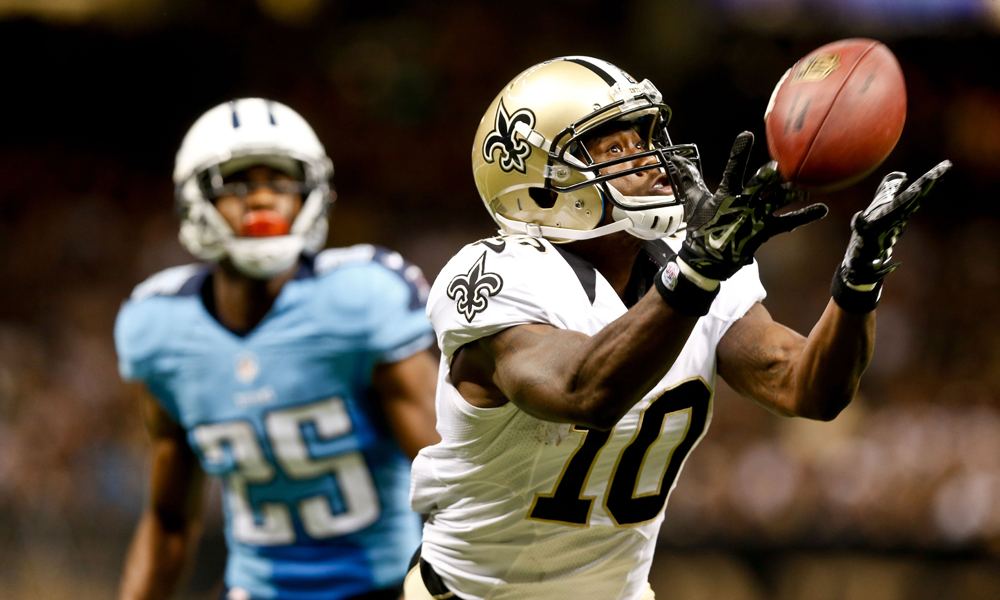News
There is a Lack of Quality Offensive Linemen in the NFL.
The NFL is suffering from a lack of talent along the offensive line. Find out why.
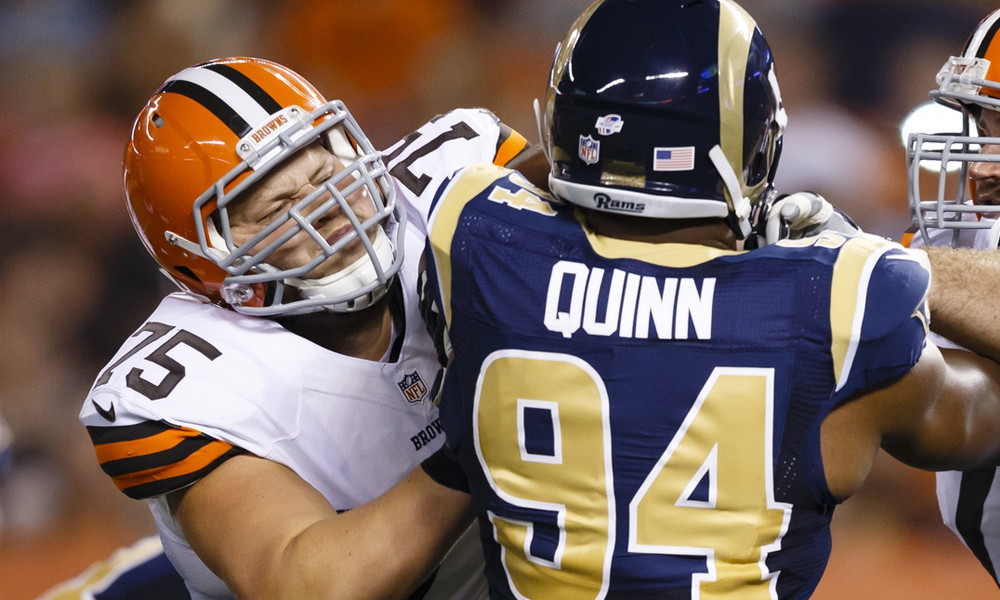
Outside of quarterback, there is not a more important unit to a football team’s success than the offensive line. They have such a grandiose effect on what a team does and how they execute on a play-to-play basis. Great offensive lines can make bad quarterbacks look capable (Andy Dalton) and flawed running backs look flawless (DeMarco Murray).
Oftentimes in the NFL, the team that wins is the team that controls the line of scrimmage on each side of the ball. The easiest way for a defense to disrupt an offense’s rhythm is to cause disruption in the backfield. This disruption impedes the timing of the offense, which will severely limit an offense’s effectiveness. However, if an offensive line prevents any disruption than it allows the quarterback to have time to get through his progressions and make accurate throws or allows the running back to be patient and hit any running lanes that may develop.
Before injuries to starters Doug Free and Ronald Leary, the Dallas Cowboys’ offensive line was the epitome of this type of cohesion and effectiveness. A great deal of the credit for the Cowboys 6-3 start has gone to Tony Romo, DeMarco Murray and the much-improved defense. Nevertheless, the lion’s share of credit should go to their offensive line. Led by All-Pro left tackle Tyron Smith and rookie guard Zack Martin, the Cowboys offensive line has allowed DeMarco Murray to be on a record-setting pace running the ball, while Tony Romo is having one of his most efficient seasons as a passer. The offensive line has been the biggest reason why the Cowboys are fourth in the NFL in time of possession, which has allowed the defense to be fresher and play at a much higher level.
You would think that since the offensive line is so important to a team’s success that it would be one of the deepest in terms of quality players in the NFL; however, that is just not the case. Every year, you will see offensive linemen go down due to injury and be replaced by a lineman who is below average. This is clearly evident in what is happening in Atlanta. The Falcons have had five separate offensive linemen placed on injured reserved thus far this season. The result has been subpar play up front, which has been one of the biggest factors to the Falcons 2-6 start to this season.
Another team who epitomizes this idea is the Cleveland Browns. We discussed earlier this season how the Browns have one of, if not, the best offensive lines in the NFL. However, a season-ending leg injury to center Alex Mack has significantly reduced the effectiveness of the Browns offensive line. In the three games since he has been injured, the Browns have only ran for 158 yards on 83 carries, which is good for 1.90 yards per carry when they averaged 4.4 yards per game in the five prior games. Also, in the five games with Alex Mack, the Browns only gave up an average of 0.8 sacks per game, 1.8 quarterback hits per game and 4.2 hurries per game; however, in the three games without Mack, the Browns have given up an average of 1.6 sacks per game, 1.6 quarterback hits per game and 9.3 hurries a game per Pro Football Focus.
This has been due to very poor play from Mack’s replacements. In Week 7, the Browns moved right guard John Greco, who was having a great season, to center as Paul McQuistan moved to right guard. However, Greco didn’t play as well as he had at right guard and McQuistan struggled mightily. Therefore, in Week 8 and 9, the Browns moved Greco back to right guard and used Nick McDonald as the starting center, which didn’t help things as the Browns still struggled in pass protection and run-blocking.
The Cowboys have even had some issues on their offensive line with two of their five opening day starters out. They had trouble picking up the wide variety of stunts and blitzes against Washington and didn’t do an adequate job of getting push up front against the Cardinals.
One reason for the struggles of those offensive lines is the amount of cohesion it takes for an offensive line to be successful. The offensive line is the only unit that if you take one player out it negatively affects the whole unit. Offensive lines must seamlessly work together to make the offense work. For example, on some running plays, a guard has to help a center secure his block before going to the second level; therefore, if the center can’t maintain the block by himself the guard can’t release to the linebacker at the second level, which allows the linebacker to roam free and have a much higher chance of stopping the run.
Also, the offensive line must work together to pick up blitzes or pass off any stunts from the defensive line. If one member of the line doesn’t work with the rest it will likely result is a negative play for the offense.
Another reason is the lack of competent offensive linemen in the NFL as a whole. Most teams struggle to put together five average offensive linemen, let alone getting enough of them to have competent backups. One NFL scout told Football Insiders, “There aren’t enough NFL offensive linemen playing in the NFL. There are guys starting around the league who wouldn’t have been on rosters 10 years ago.”
What is the reason for this lack of talent?
To get a picture as to why there is this lack of offensive line talent in the NFL, we must first look at the place where the NFL gets the majority of its players: college football.
The proliferation of the spread and option-based offenses has significantly harmed the development of offensive linemen going into the NFL. The spread and option-based schemes ask their offensive linemen to perform tasks that don’t exactly translate into most NFL offenses. Simple things like the center not snapping the ball to a quarterback under center and big things like wide splits, almost exclusive play in a two-point stance and lack of man-blocking. In a spread offense, an offensive lineman is almost exclusively in a two-point stance, while in the NFL, linemen are in a hybrid of two- and three-point stances.
This fact is particularly harmful in run-blocking in the pros where offensive linemen are in a three-point stance for the large majority of running plays. This leads to offensive linemen coming into the NFL with a poor understanding of pad level and a bad habit of leaning on their opponents. When you analyze it, these offensive lineman are taught how to run block from a two-point stance for three to five years in college, which is totally different technique wise than doing the same from a three-point stance. That’s thousands upon thousands of hours of techniques being engrained into their brain that they won’t use a whole lot in the NFL.
Therefore, players like Luke Joeckel, who comes from a spread offense, need thousands of hours of repetition and practice to correct their technique in the NFL. However, with the restrictions on practice time in the recent Collective Bargaining Agreement, it limits how long coaches can work with players on refining their technique. Therefore, it stunts the player’s growth, which causes them to have severe growing pains that weren’t as prevalent before the CBA restrictions and proliferation of spread offenses.
Another aspect where CBA affects the talent level of offensive linemen in the NFL has to do with the amount of technique that is required to play along the offensive line in the NFL. Offensive linemen play with a significant athletic deficit on nearly every play. Defensive linemen are the height-weight-speed marvels of the NFL; therefore, offensive linemen must play with nearly flawless technique to compensate. They need to get a great deal of practice to be able to refine their technique; however, the recent CBA has severely limited those opportunities.
The Boston Globe’s Ben Volin reported, “the new CBA cut the offseason program by five weeks, reduced the number of offseason practices from 14 to 10, reduced the number of padded practices during the regular season to 14 (in 17 weeks), increased the number of off days during training camp, and, most significantly, eliminated two-a-day practices from training camp.”
This means that offensive linemen are not as prepared as they had been in years past and since they rely so much on their technique to help neutralize the athletic deficit they face, it ends up being extremely detrimental to their play on Sundays.
It takes a special breed of player to be able to overcome these disadvantages to become a starting-caliber offensive lineman, which severely limits the amount of lineman who have the ability to be productive and impactful in the NFL. This leads to players who have significant limitations athletically or technically getting a great deal of playing time in the NFL because of injuries or the lack of quality offensive linemen on their roster.
The only way to solve the lack of quality offensive linemen is for the schemes in the NFL and college football to become more aligned. This will make it much easier for the linemen to jump from college to the pros and significantly reduce the amount of time the player will have to spend unlearning their bad habits and learning new techniques.
As long as college football teams continue to stray away from offenses that are largely utilized in the pros and the NFL continues to limit the amount of time players can spend with coaches, the NFL will continue to have a lack of depth along the offensive line, which will continue to have negative consequences for teams like the Falcons year in and year out.
News
Buccaneers admit mistake, boot Aguayo
Source: Mike Florio of ProFootballTalk
Powered by WPeMatico
News
Did Bucs put too much pressure on Aguayo?
Source: Mike Florio of ProFootballTalk
Powered by WPeMatico
News
Broncos holding their breath on Derek Wolfe
Source: Mike Florio of ProFootballTalk
Powered by WPeMatico
